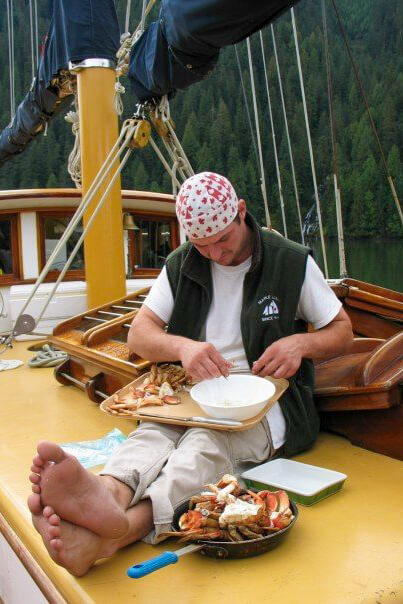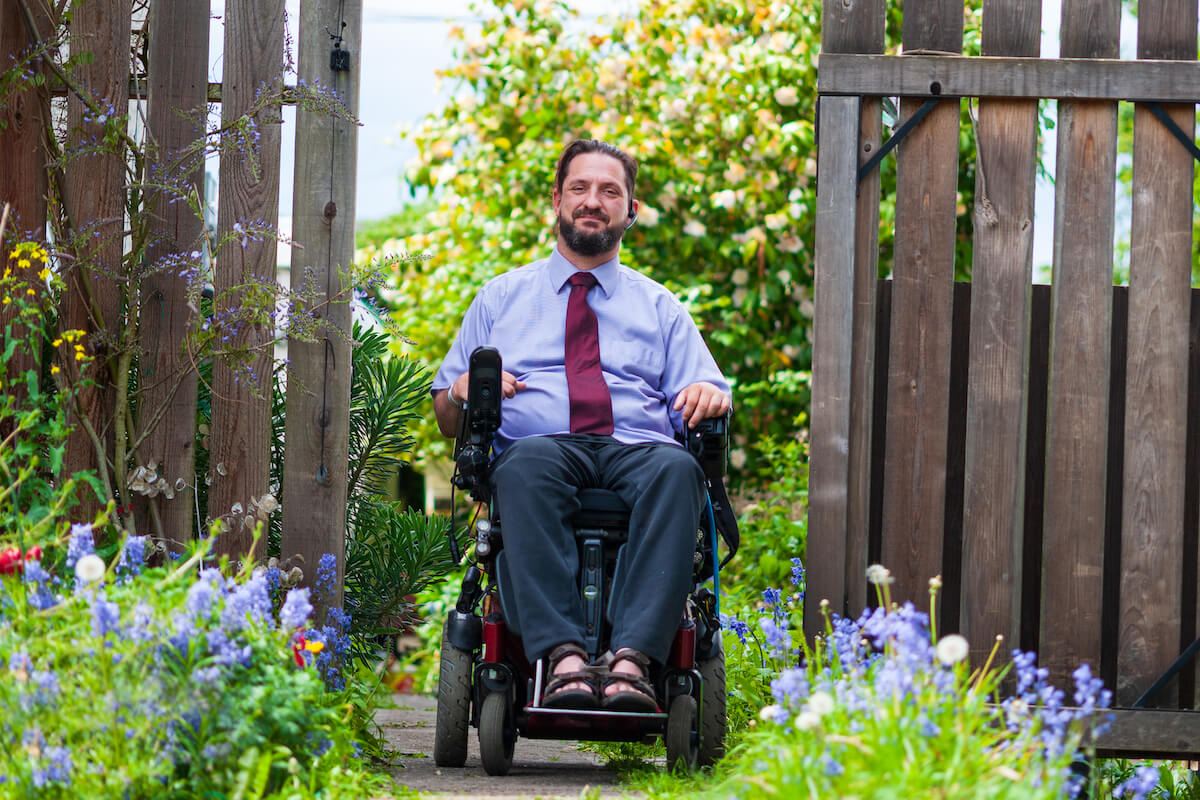
Chris Marks is a born-and-bred, European-Canadian who grew up on fishing boats off of Vancouver Island, in British Columbia (B.C.). By the time he was 25, he logged three years of sea time. He was no stranger to 16-hour days working as a shipwright and fisherman for his family’s businesses.
His achievements didn’t stop there. He became a level III occupational first aid attendant, a volunteer fireman, a commercial fisheries observer, and an oil spill response technician.
As a father of two, from 2004 to 2005, he went to culinary school to become a sushi chef – a skill he had been practicing for roughly a decade prior (thanks to his family’s regular supply of tuna and a sushi restaurant client!).
After graduating, Chris worked in a sushi bar and on The Maple Leaf – B.C.’s oldest tall ship. The ship took tourists into the province’s remote areas, like the Great Bear Rainforest and Haida Gwaii.
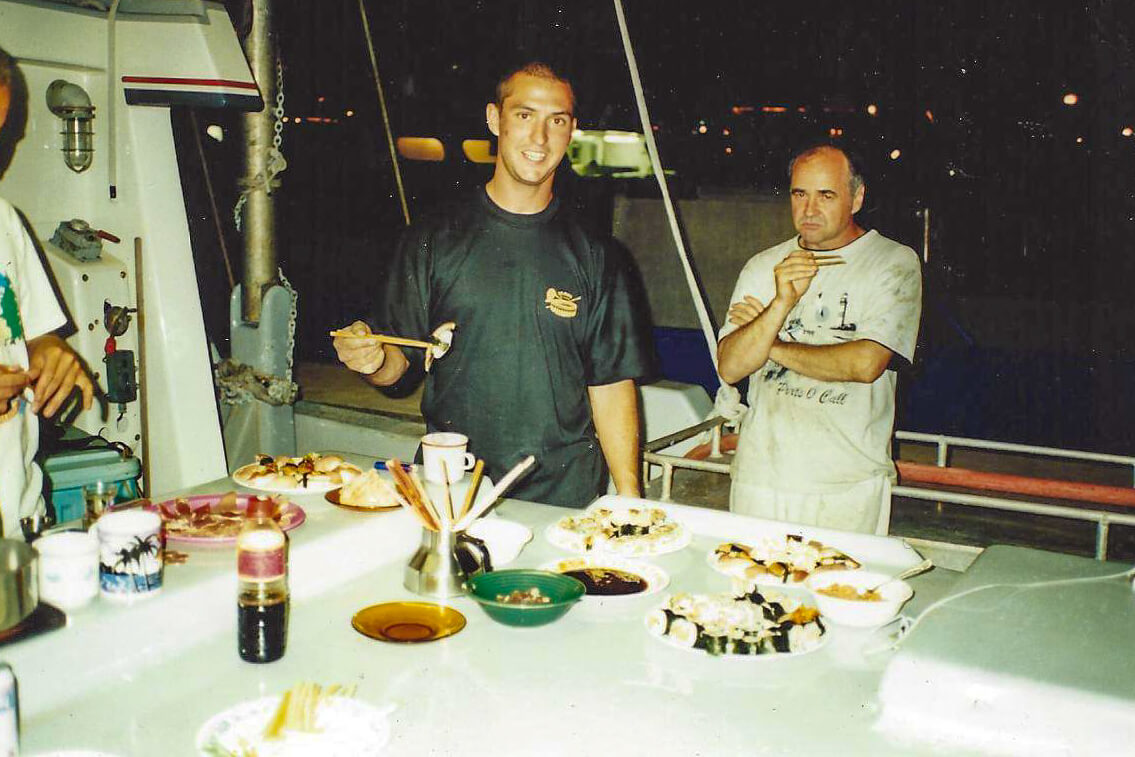
Catastrophe, but not without hope
Tragedy hit in November 2005, when, at the age of 31, Chris was a passenger in a vehicle crash. It resulted in a C5 spinal injury. He had to start life over as a quadriplegic. His children were six and eleven at the time.
“Everything in my life changed at that point. I had to start from the level of an infant and was at first unable to feed myself, or do anything on my own,” he recalls.
“Spinal injury is most extreme survivable injury a human can endure – it affects every system in the body: temperature control, blood pressure, bladder, bowel, sexual function, nervous system, autonomic nervous system, parasympathetic system etc. and you need help with everything. There is a sudden loss of independence, autonomy, spontaneity, privacy. . .My former life was no more and there was no roadmap for the future.”
Chris spent eight months in hospital and rehab, learning how to use what he could, and to maximize it. Today, he can move his biceps, but his hands and fingers do not work.
“Spinal injury can be like living with a ghost of your former self, but it is also an opportunity to create a new self,” explains Chris.
And that’s exactly what he did.
Becoming an independent parent
Chris began living independently with the help of a caregiver who visits him twice a day. He had already been separated from his wife by this point.
His son moved in with him eight years after his injury, when he was 15.
“Spinal injury didn’t stop me from being a parent at all, but it changed the way I am a parent,” he explains.
Chris helped his son get a job at a nearby restaurant, before he studied carpentry.
“I tried to give him experiences and set him up with life skills that will serve him well for the rest of his life,” says Chris.
“Both of my children are the reason I fought and worked so hard after injury to never give up and keep improving and show them how to live your best life and make the most of everything you have.”
His daughter now works as a healthcare aid. His son has his Red Seal, and is working in carpentry.
For a few years after his injury, Chris worked a job teaching risk management and injury prevention at schools in different parts of Canada.
Opening doors to new professions through education
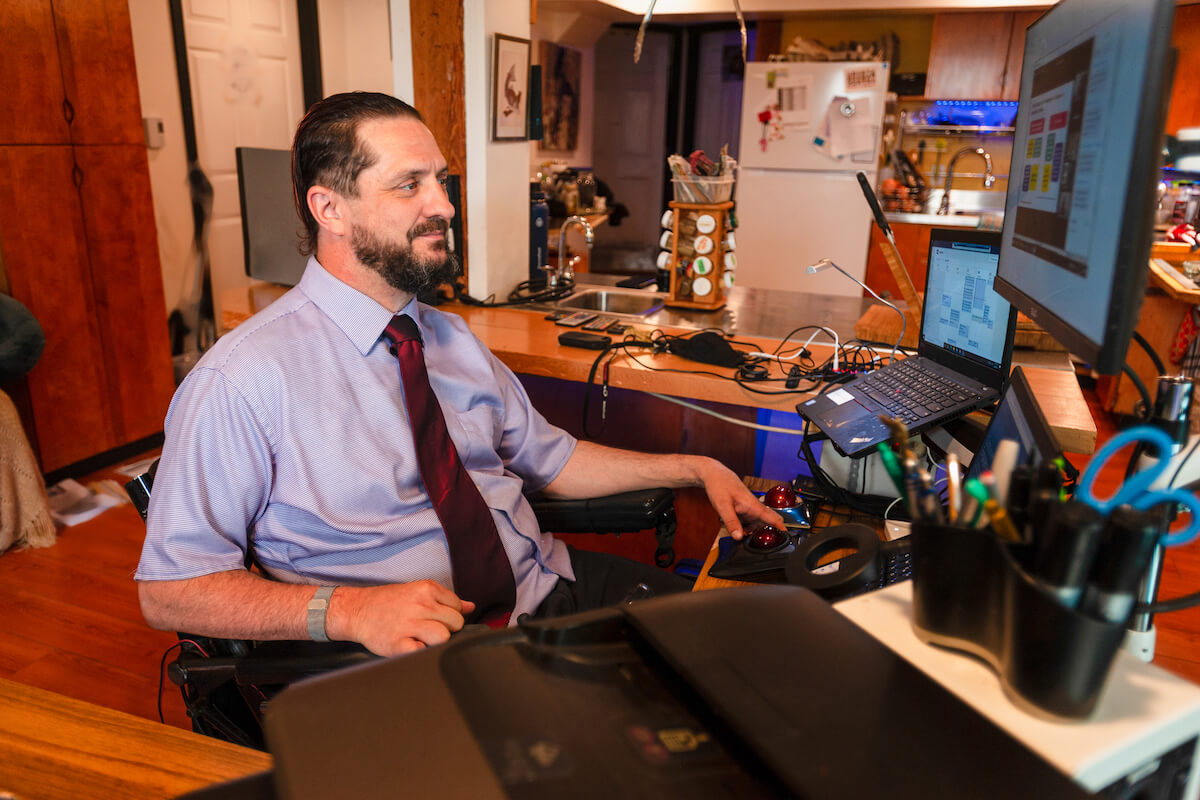
In 2019, Chris completed his Bachelor of Business Administration (BBA) in Marketing at Camosun College. He also got his certificate in general business and his diploma in business management.
Desiring to help other students
While at Camosun College, Chris made sure to leave a legacy. He worked with the student society. There, he started a bursary for low-income, disabled students. It was designed to be funded by peers at the school. Thus, it was named the “Students Helping Students” bursary.
The fund raised roughly $40,000 CAD. The interest it generates helps a few students each year.
Financial giving was a matter close to Chris’s heart.
“For over 14 years I survived on income assistance and student grants and loans. I developed a belief that helping people who need the most delivers the biggest payoff for the individual and for society,” he explains.
Advancing his educational heights through scholarships
Chris’s educational journey did not end there.
In September, 2021, he began his Masters of Arts in Professional Communication at Royal Roads University.
That’s when he was awarded the $5,000 CAD Budh Singh and Kashmir Kaur Dhahan Scholarship, along with another from Spinal Cord Injury BC, under the Gragopean Scholarhsip Trust.
The Budh Singh and Kashmir Kaur Dhahan Scholarship was created by Barj Dhahan, founder of Canada India Education Society (CIES), in partnership with Royal Roads University. He named it after his parents.
The scholarship’s eligibility requirements state “academic excellence,” “leadership in the community or efforts to overcome personal challenges,” “underrepresented populations” and “reasonable financial need.”
Those sources of financial assistance were a great relief to Chris, who wanted to continue to serve his community. He believes communication is key to creating positive change, and wants to get better at it.
“Despite all the challenges, I have been blessed with a lot and I have a duty and an obligation to give back and help those who have trouble speaking up for themselves,” he says.
“[The] support. . .is overwhelming, humbling, inspiring, and takes away all my excuses. It helps stop me from incurring more debt and spending countless hours trying to apply for bursaries and grants and loans. This course load is too heavy to allow much time for that! . . .Without it, I would not be able to embark upon this step in my education.”
Continuing in employment
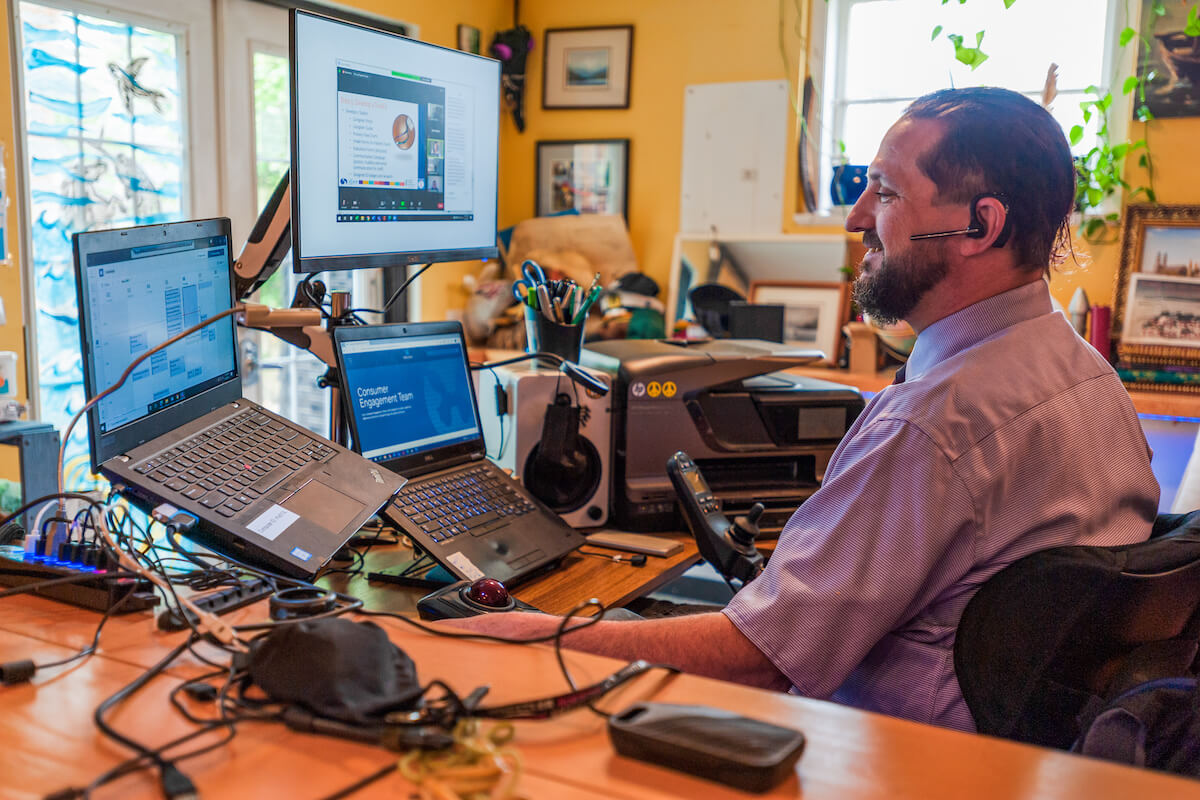
While studying, Chris works three to four days a week with the non-profit Praxis Spinal Cord Institute. He is their Vancouver Island Regional Community Liaison. He describes his job as helping “lead global collaboration on spinal cord injury research, care, cure, commercialization, and integrating persons with lived experience (PLEX) at every step.”
Maintaining a spirit of volunteerism
Chris’s volunteer days have also been revived. Today, he volunteers with the City of Victoria on the Active Transport Advisory Committee and the Accessible Advisory Committee. He also volunteers with a local arts community, helping produce their yearly fundraiser, and is on the Board Of Directors for Technology for Independent Living.
“I can’t work on the boats or the kitchens or the shipyards anymore with my hands, but fortunately my brain still works and I have found many ways to be of service and to contribute; I am fortunate to have an amazing life worth living that I don’t need a vacation from,” he says.
